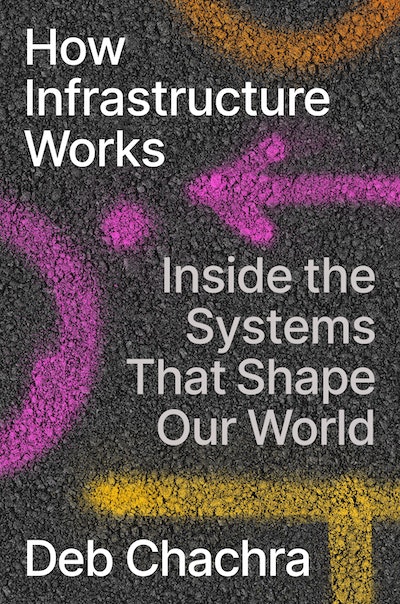A new way of seeing the essential systems hidden inside our walls, under our streets, and all around us
Infrastructure is a marvel, meeting our basic needs and enabling lives of astounding ease and productivity that would have been unimaginable just a century ago. It is the physical manifestation of our social contract—of our ability to work collectively for the public good—and it consists of the most complex and vast technological systems ever created by humans.
A soaring bridge is an obvious infrastructural feat, but so are the mostly hidden reservoirs, transformers, sewers, cables, and pipes that deliver water, energy, and information to wherever we need it. When these systems work well, they hide in plain sight. Engineer and materials scientist Deb Chachra takes readers on a fascinating tour of these essential utilities, revealing how they work, what it takes to keep them running, just how much we rely on them—but also whom they work well for, and who pays the costs.
Across the U.S. and elsewhere, these systems are suffering from systemic neglect and the effects of climate change, becoming unavoidably visible when they break down. Communities that are already marginalized often bear the brunt of these failures. But Chachra maps out a path for transforming and rebuilding our shared infrastructure to be not just functional but also equitable, resilient, and sustainable. The cost of not being able to rely on these systems is unthinkably high. We need to learn how to see them—and fix them, together—before it’s too late.
